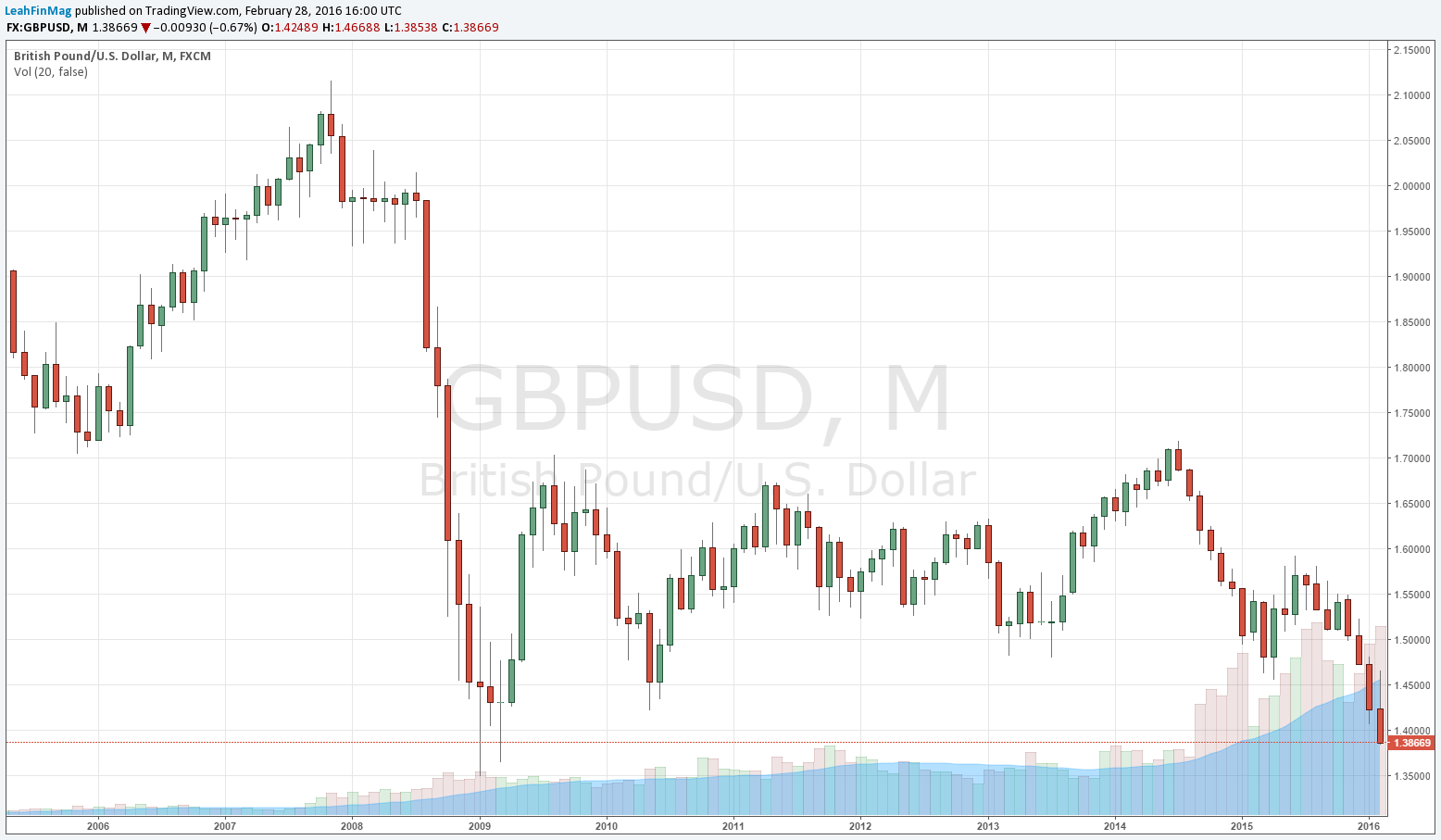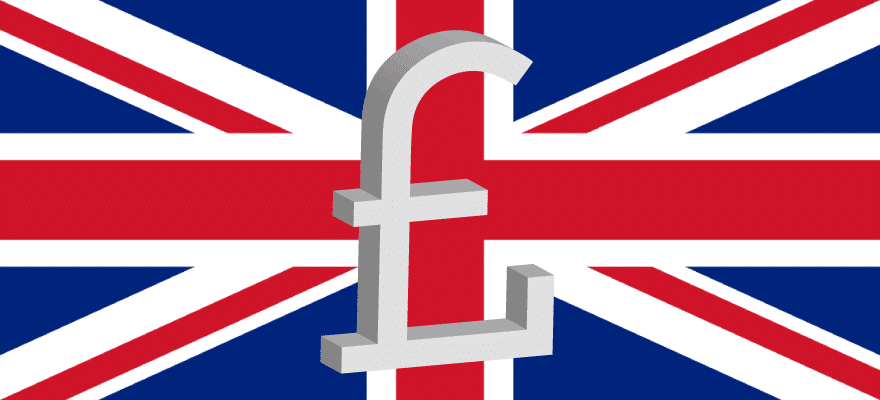This guest article was written by Hangfu Zou, Senior Analyst at AETOS Capital Group.
In this article, we will first analyse the past behaviour of GBP/USD since the financial crisis, then the trend that has been created in the last one and a half years, and finally the recent behaviour of the British pound and relevant factors that influence it.
As we know, the historical low of the pound in the past 10 years happened after the financial crisis, and it did not take too much - a simple crash was enough. In order to recover from the crash, the British government put a lot of energy into recreating a strong position for the pound. The result has been considered reasonable, because for a period of seven years only an oscillation zone was created. The market may consider that as this period was an international economic recession, not making the situation worse can be considered an achievement.
However, there is a sentiment in the market that does not like the behaviour of the pound. This kind of emotion can accumulate, which is the main shorting force of the pound.
As we mentioned before, the shorting force started from around June 2014, and a very strong downtrend has been created. One factor to take into account was the strong dollar and the expectation of a rise in interest rates. Another reason could be that British quantitative easing (QE) does not work as efficiently as US QE, or that the British economy somehow has not recovered from the foreign crisis.

Hangfu Zou
The market is always sensitive and the price always reflects everything, this is how the trend was created in the first place.
Some people say, if you have an emotion, you should let it out. Therefore, now is the second period of the pound releasing its shorting power. All the action needed is a lit fuse, the recent referendum about leaving or staying in EU could be the main one. The final decision will be made in four months, and the government may believe that the vote will help the government get out of the recession, not just the relationship with EU. Consider the referendum of Greece last year: the final decision may not be that important, governments always do what they have to do, but the foreign Exchange currency market does not.
In the next four months, any currency paired with the British pound will be very sensitive, any government speech could drive the market to extreme situations, the London mayor’s decision being one good example. Market fluctuation has been considerable increased, and the pound is not as stable as before.

Source: Tradingview
In conclusion, the recent low maybe not the lowest - considering recent market behaviour and market sentiment, the game has just started. The trend could even become stronger now there is nothing to stop it.


















